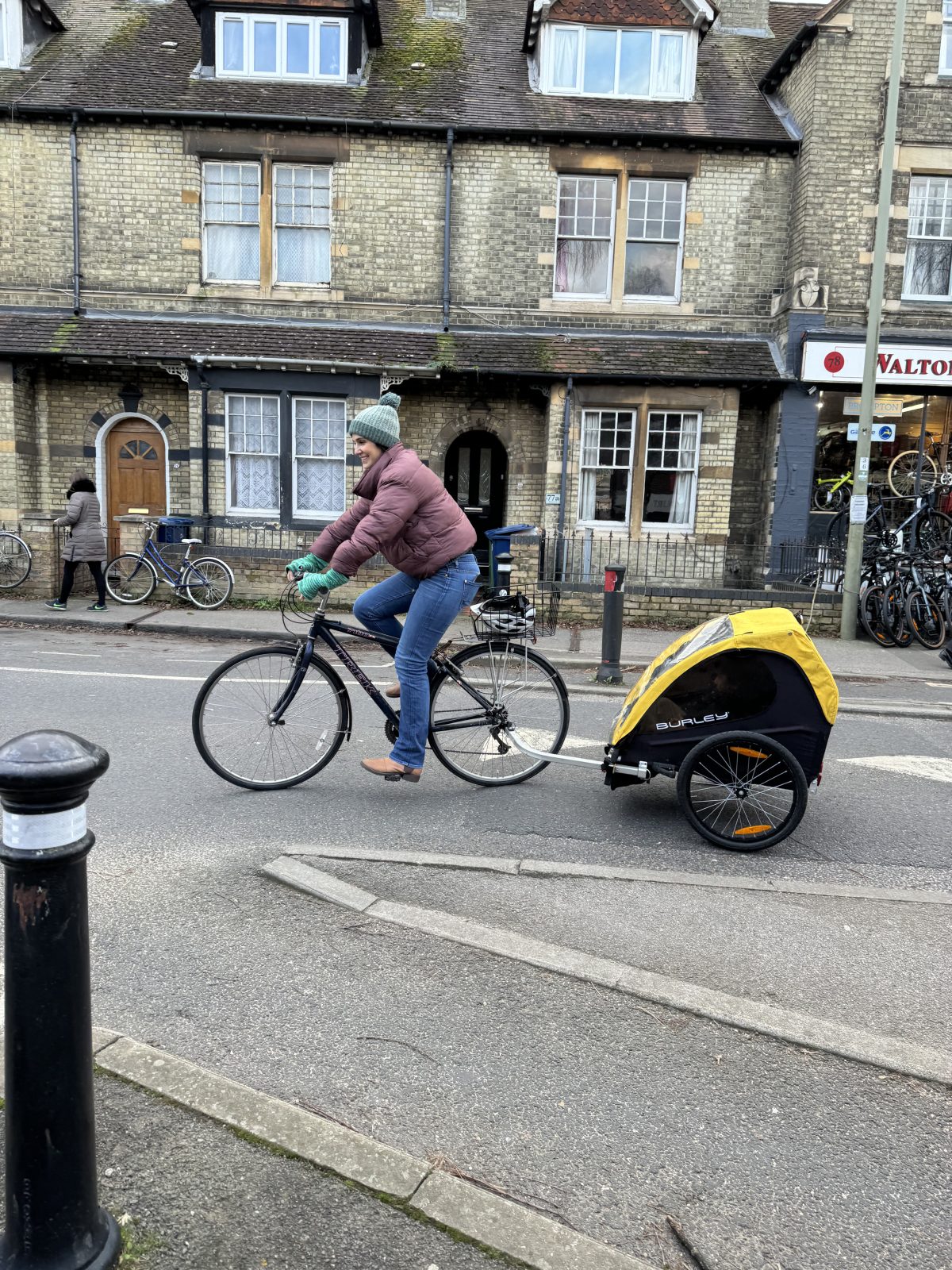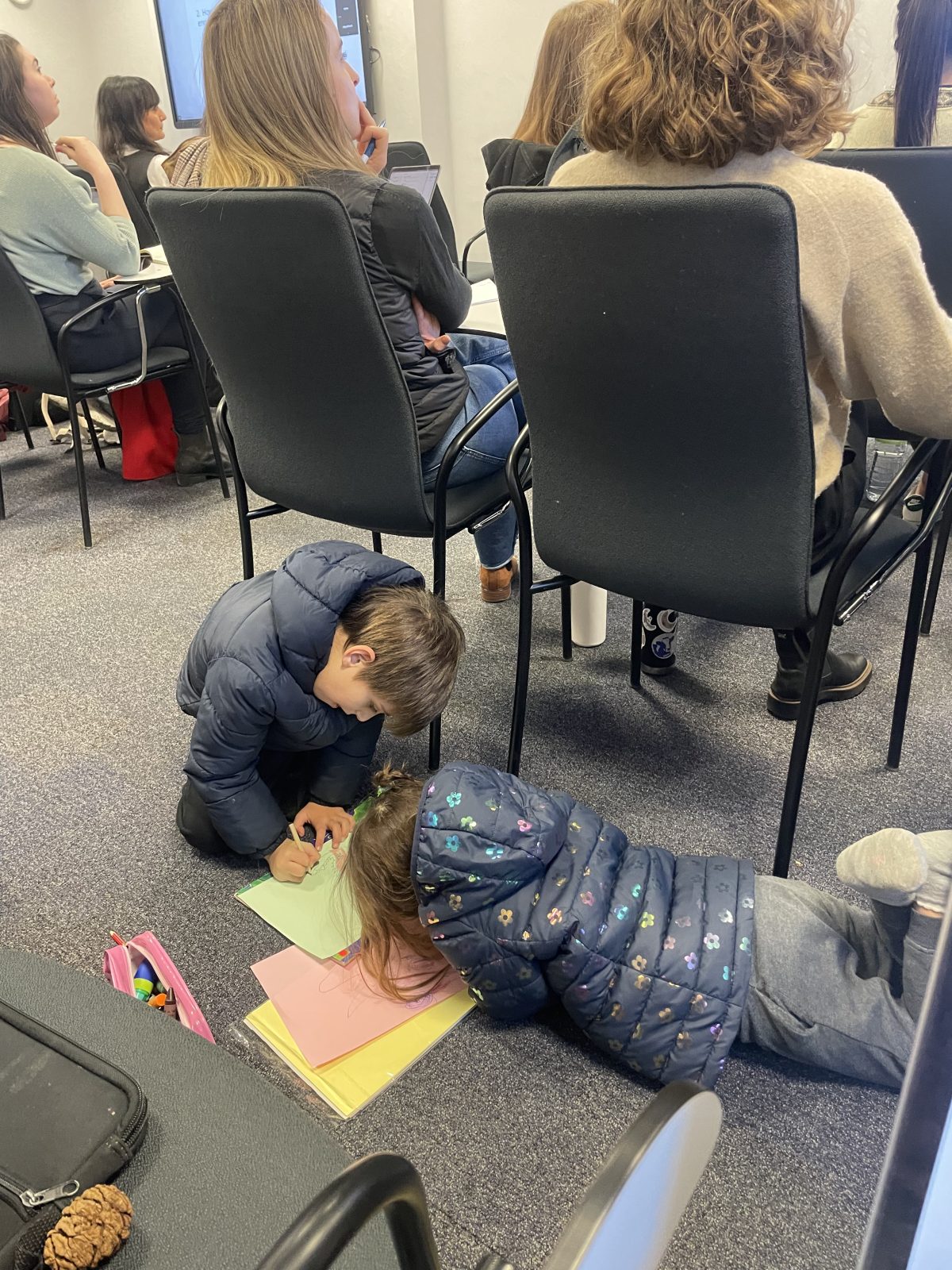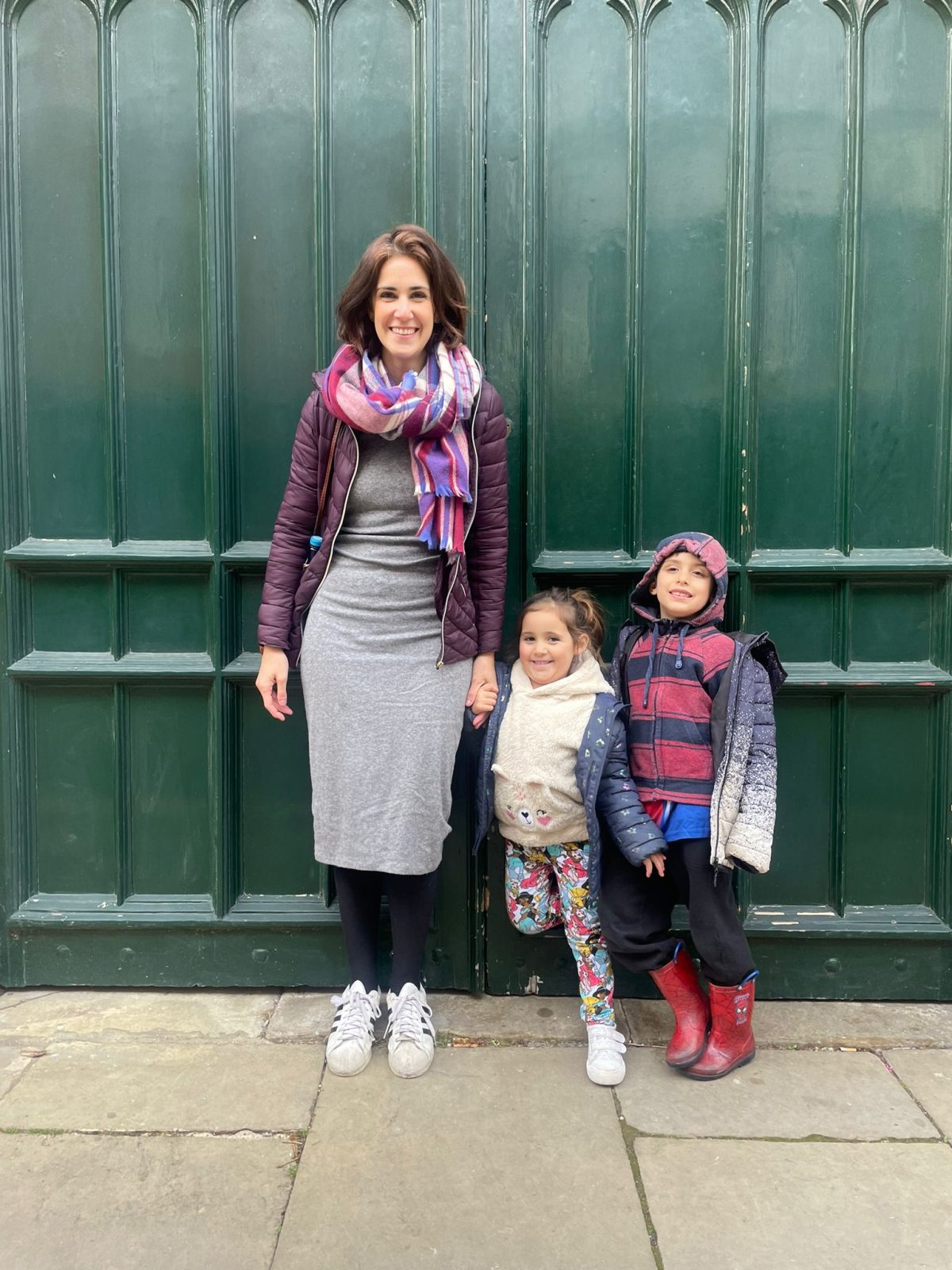Oxford university, political science, gender equity, bike, crayons and snacks.
By Camila Infanger Almeida, PhD candidate in the Political Science department, São Paulo University (USP), Brazil
“It is not possible, you won’t have time to study, do your research…” “Two kids on your own is far too much work.” “Mental load wise, it is probably not feasible at all.”

It is not an exaggeration to describe the lead-in time of my journey as a visiting scholar at Oxford University, in the UK as a tense, uncertain and anxious moment. I was getting ready to land in a new city, where I had no existing connections and where my kids were expected to attend school in a language they were still in the early stages of learning. On a rather sidebar, I was also expected to succeed in finding my way around one of the most prestigious academic environments of the world, within the daily 6-hour window when I had a break from motherhood.
Planning a research visit on one’s own is an almost entirely different experience than planning the same visit along with a 3-year-old and a 5-year-old under your responsibility, so I quickly learned. Upon the moment I received the invitation letter from my to-be supervisor at the Latin American Centre, Oxford University, I immediately started investigating the children’s schooling possibilities. I did not rest and celebrated the confirmation of my place abroad before I had fully secured my children’s places in school. We are a team. The three of us had to secure our places in Oxford.

My prior academic journey, intertwined with my professional one beyond academia, has a strong international component. During my initial years of undergraduate studies, I spent several months as a trainee in Frankfurt, Germany; studied English in Dublin, Ireland; completed my undergraduate studies in London, and later volunteered with NGOs in Trondheim, Norway. I knew what it was like to be a foreigner or, in other words, how to adapt to new dynamics of places, cultures, climate and people. What I did not know was how to be a mother and, more importantly, how to make my children’s first experience of living abroad a great one.
Oxford is pretty amazing. What a gem of a city. Dotted with 38 colleges, most of them built during mediaeval times, Oxford city combines a rich variety of natural attractions, cultural sites and an international community. Waking up every and realising that I was actually living there—not just dreaming about it—was fascinating. I’ll never forget sitting in my first seminar or the first class I audited and my mind wandering as I wondered about the backgrounds of the others in the room. Who goes to Oxford? Was I really one of them? Was a PhD candidate who was also a mother of two really one of them?
We all fell in both our individual and team routines. My days were filled with various kinds of excitement: I was excited for people’s reactions when I had chances to talk about my research, I was excited to hear about people’s works in events and conferences, excited to walk in a new library from 1200s, excited to understand the protocols in the formal dinners and I also was super excited to hear about children’s days at school and their new adventures as little Brazilians in a British school.
Being a temporary solo mother in the UK was not only an individual, or rather a family, endeavour, it was a political act.

My 7 months there taught me that “student mother” isn’t a category present in the institutions’ policies rationale: places dedicated to students do not allow children in. It taught me two kinds of looks I could get in the academic spaces: one kind when I was on my own, reading me as an interesting young political science researcher from overseas, while the other kind I usually got when my kids were with me, a kind of look that read me as nuisance to the otherwise quite, sober and organised environment, a clumsy woman trying to juggle which was obviously much more than she could handle… To be fair, the latter wasn’t entirely inaccurate. I read myself that way too, sometimes.
What neither look was able to reach was a thin layer underneath what could be observed in brief moments: the stubbornness I brought along in my hand luggage. Well, I could have been more elegant, had I used the word persistence instead. But it wasn’t really about persistence, not only anyway. It was about really wanting to be there. It was about living up Oxford to its maximum. It was about leaving footprints in people’s and institutions’ perceptions that mothers belong in academia and are able to occupy spaces. More importantly, we need institutional and financial support to exist. I regret not seeing many women like me occupying the spaces I occupied. My time in Oxford strengthened my struggle to make academic mothers experience academia the way others do. Including the internationalisation of our careers and the conciliation of it with motherhood demands. Academia is a much better place with mothers in it: support us to be there and you will all see the difference we make!
Camila Infanger Almeida; PhD candidate in Political Science at USP, Visiting Researcher at the Latin American Centre, Oxford University. Master’s degree in International Management at ESPM, Bachelor in Economics and Politics at London Metropolitan University. Researcher in the area of Public Policy and Gender Studies. Currently a member of the Parent in Science movement, developing work on the theme of Motherhood and Academia and the inclusion of women in scientific careers.
Academic CV (Curriculo lattes) : http://lattes.cnpq.br/2196584113235141
Most recent collaborations: “A room of her own: the gendered institution of science and the tortuous path faced by academic mothers” (in Italian) https://left.it/2024/04/17/world-forum-for-women-in-science-la-sfida-delle-donne-scienziate-agli-stereotipi
“With productivity questioned, mothers in science report prejudice in academic careers” (In Portguese) https://www1.folha.uol.com.br/ciencia/2024/05/com-produtividade-questionada-maes-cientistas-relatam-preconceito-na-carreira-academica.shtml?pwgt=kqsyb2yhwlkvkzd9cuof2jtpg7cdsjc2io1li7ovxffc8b2a&utm_source=whatsapp&utm_medium=social&utm_campaign=compwagift
